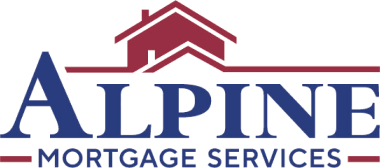Investment Property Mortgage Loans
Investing in real estate presents a unique set of opportunities and challenges, especially when it comes to financing. Investment properties can vary widely, from single-family residences or condominium units, which offer the simplicity of managing a single tenant or lease, to multi-family residences like duplexes and apartment buildings, where the income potential scales with the number of units. Commercial properties, including office buildings, retail spaces, and warehouses, cater to business uses and offer different financial dynamics compared to residential properties.

What is an Investment Property Mortgage?
An investment property mortgage is a loan specifically designed for purchasing real estate properties that are not intended to be the borrower’s primary residence. These properties can include single-family homes, multi-family homes, condos, townhouses, and more. The primary purpose of these properties is to generate income, either through rental income, appreciation, or both.
Types of Investment Property Loans
The mortgage loans available for investment properties vary based on the type of property and the level of documentation provided and include Conventional Loans, Debt Service Coverage Ratio (DSCR) Loans and No Doc Loans/Hard Money loans.
Conventional Investment Property Loans
- Minimum Down Payment: 25%
- Minimum Credit Score: 660
- Property Types: Single Family, Multi-family up to 4 units, Condos
Conventional loans are the most common type of mortgage loan for investment properties. Conventional loans are available for single family properties, condominium units and multi-family properties up to 4 units. Lenders closely scrutinize the borrower's financial history, credit score, income, and debt-to-income ratio, to determine eligibility. Conventional loans for investment properties come with higher interest rates compared to primary residence loans but are more favorable than other investment property loans.
Debt Service Coverage Ratio (DSCR) Investment Property Loans
- Minimum Down Payment: 25%
- Minimum Credit Score: 620
- Property Types: Single Family, Multi-family up to 8 units, Condos, Mixed Use Properties
Debt Service Coverage Ratio Loans, or DSCR Loans, are a type of investment property loan that bases eligibility on the property's ability to generate enough income to cover the mortgage payments and other expenses. The DSCR is calculated by dividing the property’s annual net operating income by its annual mortgage debt service (principal and interest payments). This type of loan is ideal for rental properties and is particularly beneficial for investors who might not qualify for traditional financing due to high debt-to-income ratios or other factors. DSCR loans offer flexibility but also carry higher interest rates than conventional loans.
No Doc Loans/Hard Money Investment Property Loans
- Minimum Down Payment: 40%
- Minimum Credit Score: 500
- Property Types: Single Family, Multi-family, Condos, Mixed Use Properties
No Doc Loans and Hard Money Loans are secured by the property itself and are usually offered by private lenders or investment companies rather than banks. These loans are short-term, often with terms ranging from one to five years, and they focus more on the property's value and potential rather than the borrower’s creditworthiness. Hard money loans can be advantageous for investors looking to finance fix-and-flip projects or when a quick close is necessary. However, they come with significantly higher interest rates and fees compared to other types of investment property loans.
Investment property mortgage loans offer a range of options to suit different investment strategies and financial situations. Whether an investor prefers the stability of a Conventional Loan, the income-focused approach of a DSCR Loan, or the flexibility of a No Doc Loan, understanding each option’s nuances is crucial. It's essential for investors to assess their financial health, investment goals, and the specifics of the property they wish to purchase to choose the most appropriate financing method. Consulting with a financial advisor can also provide valuable guidance tailored to an investor's unique circumstances.
Qualification Requirements for Investment Property Loans
To qualify for an investment property loan, here are the criteria for the various loan programs:
| Loan Type | Min. Credit Score | Min. Down Payment |
|---|---|---|
| Conventional Loans | 660 | 25% |
| DSCR Loans | 620 | 25% |
| Hard Money Loans | 500 | 40% |
The Loan Process for Investment Properties
The process of securing a mortgage for an investment property is similar to that of a primary residence but with additional scrutiny. Here are the typical steps:
- Preapproval: Get preapproved for a mortgage to determine your budget and show sellers you are a serious buyer.
- Property Search: Find a suitable investment property that meets your criteria and budget.
- Loan Application: Submit a formal loan application provide all of the required documentation for the particular loan program.
- Appraisal: The lender will conduct an appraisal to determine the property's value and an inspection to ensure it meets their standards.
- Underwriting: The lender will review your application, credit history, and financial documents to determine if you qualify for the loan.
- Closing: Once approved, you will sign the final loan documents and close on the property.
Interest Rates for Investment Property Mortgages
Interest rates for investment property mortgages are generally higher than those for primary residences. This is because lenders view investment properties as riskier. Rates for conventional investment properties are typically 0.50% to 0.75% higher than those for primary residences, but this can vary based on the down payment, credit score, and other factors. For a personalized quote, please contact us.

How to Get the Best Investment Property Mortgage Rates
To secure the best mortgage rates for an investment property, consider the following strategies:
- Improve Your Credit Score: A higher credit score can help you qualify for better rates. Pay down existing debts and ensure your credit report is accurate.
- Increase Your Down Payment: A larger down payment reduces the lender's risk and can result in a lower interest rate.
- Lower Your DTI Ratio: Reducing your debt-to-income ratio by paying off debts can make you a more attractive borrower.
- Shop Around: Compare rates from multiple lenders to find the best deal. Consider working with a mortgage broker who can help you navigate different loan options.
- Get Preapproved: Securing a mortgage preapproval can give you a better idea of how much you can afford and show sellers that you are a serious buyer.
Calculating the ROI on Your Investment Property
Return on Investment (ROI) is a critical metric for any real estate investor. Here’s how to calculate it:
- Determine Your Annual Rental Income: Calculate the total rental income you expect to receive in a year.
- Subtract Operating Expenses: This includes property taxes, insurance, maintenance, property management fees, and any other recurring costs.
- Subtract Mortgage Payments: Include both principal and interest payments.
- Divide by Your Total Investment: This includes your down payment, closing costs, and any initial repairs or renovations.
Tax Benefits of Investment Properties
Investment properties offer several tax advantages:
- Depreciation: You can depreciate the property over 27.5 years for residential properties, reducing taxable income.
- Interest Deductions: Mortgage interest on investment properties is tax-deductible.
- Operating Expenses: Property management fees, repairs, insurance, and other operating expenses can be deducted from rental income.
- 1031 Exchange: This allows you to defer capital gains taxes by reinvesting the proceeds from a sold property into a new investment property.
It is important to consult with a tax professional to discuss the potential tax benefits of investment properties.
Risks and Challenges
in real estate comes with its own set of risks and challenges:
- Market Fluctuations: Property values can fluctuate, affecting your investment’s value and rental income.
- Vacancy Rates: High vacancy rates can reduce your rental income and cash flow.
- Maintenance and Repairs: Unexpected repairs can be costly and affect your profitability.
- Interest Rate Increases: If you have an adjustable-rate mortgage, rising interest rates can increase your monthly payments.
- Tenant Issues: Problematic tenants can cause damage, miss payments, and create legal issues.
Strategies for Mitigating Risks
- Conduct Thorough Research: Understand the local real estate market, property values, and rental demand before purchasing.
- Screen Tenants Carefully: Use a thorough screening process to select reliable tenants.
- Maintain a Cash Reserve: Set aside funds for unexpected repairs and vacancies.
- Diversify Your Portfolio: Spread your investments across different properties and locations to mitigate risk.
- Consider Property Management Services: A property manager can handle tenant issues, maintenance, and other tasks, reducing your workload and stress.
Securing the right investment property mortgage is a crucial step in building a successful real estate investment portfolio. By understanding the different types of loans, qualification requirements, and strategies for maximizing your ROI, you can make informed decisions that will help you achieve your financial goals.
At Alpine Mortgage, we specialize in helping investors find the best mortgage solutions for their needs. Whether you’re just starting out or looking to expand your portfolio, our experienced team is here to guide you every step of the way. Contact us today to learn more about how we can help you secure the financing you need to succeed in real estate investing. With competitive rates, flexible terms, and personalized service, we're here to support you every step of the way.
Call us today at (800) 876-5626 to speak with one of our investment property specialists or click here to have one of our investment property specialists contact you.
If you are interested in applying for an investment property loan, you can apply online now.
Investment Property Loans FAQs
The interest rate for investment properties depends on the type of property, the amount of the down payment, the loan product chosen and the loan term. For a customized investment property rate quote, please contact us.
Yes, a 30 year fixed loan term is the most common for our investment property loans.
The 1% rule states that a property should rent for at least 1% of its total upfront cost each month to be considered a good investment. This cost includes the purchase price plus any initial repairs or renovations needed to make the property rentable. For example: If you purchase a property for $100,000 and spend an additional $20,000 on renovations, the total cost is $120,000. According to the 1% rule, the property should rent for at least $1,200 per month. This rule helps investors quickly determine whether a property can generate enough rental income to justify its cost and cover expenses like mortgage payments, property taxes, insurance, and maintenance.
The most profitable rental properties are typically those located in high-demand areas such as city centers, near major employment hubs, universities, or tourist attractions. Multi-family residences like apartment buildings often offer higher profitability due to their ability to generate multiple streams of rental income from a single property. Additionally, properties in areas with strong population growth, stable or increasing job markets, and potential for property appreciation tend to be more profitable. Short-term rental properties in popular vacation destinations can also yield high returns, especially when managed efficiently and marketed well.
A good return on investment (ROI) for an investment property typically ranges from 8% to 12% annually. However, the definition of a "good" ROI can vary based on the property type, location, and the investor's personal goals. More aggressive investors might seek higher returns, while conservative investors might be satisfied with returns on the lower end of this range. Factors such as market conditions, financing terms, and management efficiency also significantly influence the achievable ROI.
Get a Quick Quote
"*" indicates required fields
